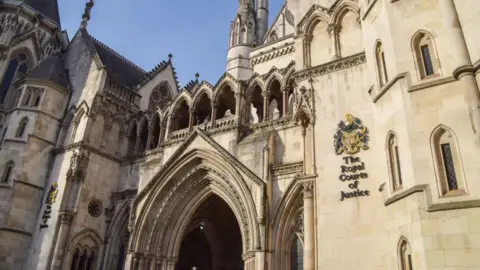In a highly-publicized case that balances national security and privacy rights, Apple has initiated a hearing against the UK government regarding encrypted data. This legal battle is taking place discreetly at the Royal Courts of Justice and revolves around the government’s request to access user data protected by Apple’s Advanced Data Protection (ADP) feature. ADP essentially allows users to safeguard their data from all access attempts, including those made by Apple itself.
The core issue stems from the UK government’s assertion that, in order to ensure national security, it requires the ability to access user information, especially in urgent situations where lives may be at stake. Conversely, Apple argues that the integrity of user privacy must be upheld and that extending access to sensitive information through backdoors compromises security. The technology giant is committed to its stance that it has never constructed a “backdoor” into its systems and does not intend to do so in the future.
The arguments advocating for transparency are strong. Various civil liberties groups, along with media organizations, have been vocally opposing the private nature of the hearing, stressing the need for public accountability. The BBC, for instance, has put forth a written appeal aimed at unsealing the hearings, as has a group of US politicians who warned that the matter has broad implications for security practices worldwide. Notably, these advocates maintain that barring the media from what they deem crucial discussions on privacy infringes on global security and transparency.
During the initial phase of the Investigatory Powers Tribunal’s hearings, journalists from several prominent news organizations—including the Guardian, the Telegraph, and Bloomberg—attended but were barred from entering the courtroom. The secrecy surrounding the proceedings only amplifies concerns that the case, with implications for countless citizens, may not have the level of public discourse it merits.
At this juncture, it remains uncertain whether subsequent phases of the case will allow for public attendance or media access. The conflicts inherent in the case are especially poignant given the existing legal frameworks that govern data privacy and national security within the UK. The Investigatory Powers Act enables law enforcement to compel technology companies to share specific data, which is at the heart of the request that has provoked Apple’s aggressive legal response.
Furthermore, Apple has already seen the fallout of its stance in the UK; it suspended the ADP feature in the country and is now seeking a judicial affirmation that its encryption practices should remain untouched. The government asserts that privacy rights are preserved under substantial safeguards and oversight, emphasizing that invasion of privacy is limited to particularly grave threats such as terrorism or child exploitation.
Critics of the government’s position lament that the implications of such surveillance powers extend beyond immediate concerns, setting a precedent for privacy erosion and raising alarming possibilities regarding data security. As the tech landscape evolves, conversations around digital privacy will only gain in importance, making this case pivotal in shaping the future boundaries between state surveillance and personal privacy rights.
As public scrutiny mounts and calls for transparency grow louder, the outcome of Apple’s hearing against the UK government may ultimately set foundational legal and ethical standards that dictate how data privacy and national security are handled in the digital age. The intersection of these powerful forces remains a pressing concern for all stakeholders: governments, corporations, and consumers that rely on the very technologies that define modern communication.



